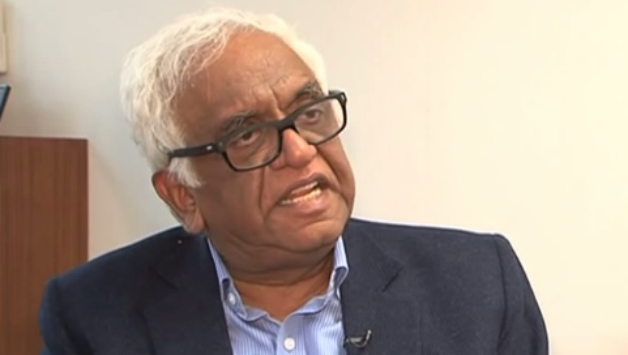
Cricket Country Staff
Editorial team of CricketCountry.
Written by Cricket Country Staff
Published: Jun 17, 2016, 02:22 PM (IST)
Edited: Jun 17, 2016, 02:22 PM (IST)


Justice Mukul Mudgal, just days before the Supreme Court hearing on Lodha Committee’s recommendations about limiting advertisements during live cricket matches, suggests pay-per-view concept. The viewers in this case will have to play to watch the live telecast of cricket matches, without being troubled by advertisements, which is famous in many other countries. He also suggests having independent channels in this regard. Justice Mudgal has is a retired Chief Justice of Punjab and Harayana High Court. Justice Mudgal was the head of the Mudgal Committee, which looked into the corruption in the Indian Premier League (IPL), which involved former Board of Control for Cricket in India (BCCI) Chief N Srinivasan’s son-in-law Gurunath Meiyappan. READ: IPL 2016: Justice Mudgal appointed by High Court to oversee Feroz Shah Kotla
Talking about the pay-per-view concept, Justice Mudgal said, “I wouldn’t like to comment on Lodha’s recommendation because the matter is subjudice. But if the fans want to watch uninterrupted proceedings of the match, a system of paying more for ad-free coverage won’t be a bad idea. People do pay for watching matches on HD channels,” Mudgal, who is the chairman of the Broadcasting Content Complaints Council of India, told The Times of India on Thursday. READ: IPL verdict will restore faith in BCCI, says Justice Mukul Mudgal
“It is for the BCCI and the broadcaster to come up with a business plan which can satisfy all parties. I can’t comment on the business side of the arrangement,” he added.
Mudgal is also looking after the day-to-day affairs of the Delhi and District Cricket Association (DDCA) and said that he will submit the report on the functioning of the state unit by July 10.
This website uses cookies so that we can provide you with the best user experience possible. Cookie information is stored in your browser and performs functions such as recognising you when you return to our website and helping our team to understand which sections of the website you find most interesting and useful.
Strictly Necessary Cookie should be enabled at all times so that we can save your preferences for cookie settings.
If you disable this cookie, we will not be able to save your preferences. This means that every time you visit this website you will need to enable or disable cookies again.
